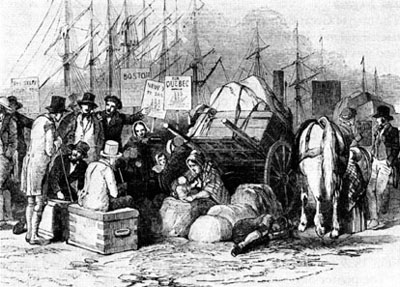Immigration is shaping up to be one of the most contentious and difficult political issues of the 21st century. One illustration of what the future holds concerns Romania’s and Bulgaria’s entry into the European Union next year. Even though these two countries will become EU members, the United Kingdom has recently declared that it intends to limit the number of Romanian and Bulgarian citizens who will be allowed to work in the UK. Strong recriminations emanated from Bucharest and Sofia, as expected.
At the center of the battles over immigration is what I call the “Tito Economic Strategy.” Under the communists, Yugoslavia couldn’t produce enough jobs to fully employ its labor force. To solve Yugoslavia’s surplus labor problem, strongman Marshall Tito came up with a simple, but ingenious, economic strategy: he opened the Yugoslav borders—at least by communist standards—and exported surplus labor. From Tito’s point of view, this plan worked perfectly. At its peak in the early 1970s, there were over a million Yugoslavs, about 11% of the labor force, working in Western Europe. The hard-money remittances (primarily German marks) that those Yugoslavs sent home amounted to as much as 30% of Yugoslavia’s exports.
Like Yugoslavia, Mexico has been either unwilling or unable to reform and modernize its economy. As a result, Mexico’s politicians have embraced the Tito Economic Strategy. In 2005, 28% of Mexico’s labor force was working in the U.S., and they sent $20 billion in remittances back to Mexico during the year. That equals one third of the total wage earnings in the formal sector of the Mexican economy and 10% of Mexico’s total exports. Not surprisingly, political clashes between the U.S and Mexico are becoming sharper.
Where does Turkey fit into this picture? In 2005, there were 3.7 million Turkish citizens living abroad, with 37% of that total (about 1.34 million) employed. This means that 5.4% of the total active Turkish labor force was working abroad in 2005. Those numbers reflect a dysfunctional Turkish labor market. According to the World Bank’s Doing Business 2007 report, which evaluates 175 countries, Turkey’s labor market ranks 146th in terms of the difficulties businesses face in hiring and firing workers. No surprise that Turkey resorts to exporting its surplus labor. But is it a solution?
The labor market imbalances, which uproot populations and dump them in alien lands and cultures, have been a boon for politicians on all sides during their acrimonious electoral debates. The hurling of veiled invectives about hypothetical events exacerbates the worst in human nature and reinforces demagoguery. The only rational, statesmanlike strategy is to ignore those voices and to reform and modernize Turkey’s economy, so that Turkish workers, who are notoriously eager to provide for their families, can do so—by working in Turkey. The best place to start those reforms is in the labor market itself.
The burdensome laws and regulations affecting Turkey’s labor market are unfriendly to both workers and businesses. At present, it is difficult to hire new workers and costly to fire them. As a result, the labor market is rigid and unable to respond to competitive pressures and to create an adequate number of jobs. The weight of Turkey’s labor laws and regulations should be dramatically reduced, so that the labor market can function in a flexible way.
Punishingly high taxes on wages also contribute to the dysfunction of Turkey’s labor market. The Organization for Economic Cooperation and Development in Paris has calculated the “tax wedge” for OECD member countries. The tax wedge is the share of employee earnings taken by the government. It is equal to the difference between labor costs to the employer and the net take-home pay of the employee, including any cash benefits received from government welfare programs. For a family with two children and one working parent, Turkey’s tax wedge was larger, at 42.7%, than that of any other OECD country in 2005, and fifteen percentage points higher than the OECD average wedge of 27.7%.
Turkey’s high taxes push Turks out of Turkey’s formal labor market, forcing them to work in the gray economy or to seek employment abroad. Taxes on wages in Turkey should be reduced by 75%. Such a reduction would put Turkey’s tax burden on wages at roughly the same level as that of Ireland (the latest tiger economy) and significantly improve the functioning of Turkey’s labor market.


0 responses on "Turkey and the Great Immigration Debate"